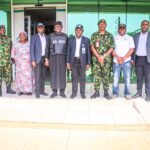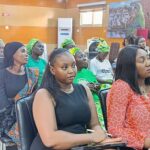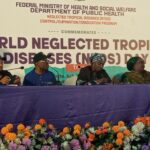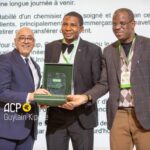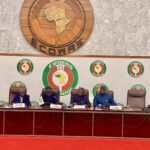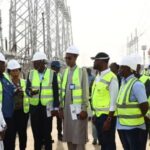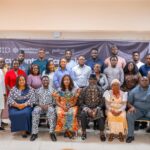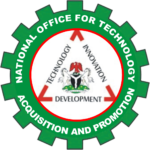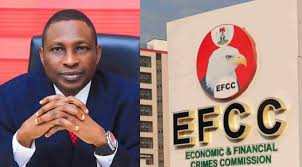By Isaac Aregbesola
Ola Olukoyede, Chairman of the Economic and Financial Crimes Commission (EFCC), has called for stronger collaboration to curb trans-border crimes and enhance peace, stability, and economic prosperity of the subregion.
Olukoyede, who is also the President of Network of National Anti-Corruption Institutions in West Africa (NACIWA), made the call at the 7th Annual General Assembly of the network in Abuja.
He expressed gratitude to delegates and reaffirmed NACIWA’s role as a unifying platform for regional anti-corruption collaboration.
He urged members to use the Assembly as “a renewal of vision, leadership, and unwavering commitment to combating corruption, which remains a key obstacle to our region’s development and stability.”
He stated that the network had proposed its formal recognition as a Technical Commission under ECOWAS Protocol Article 19, which would institutionalise coordination on investigations, asset recovery, and anti-corruption policies across the subregion.
“We must acknowledge the evolving landscape in which our institutions operate.
“Political transitions, security concerns, and governance challenges across member states underscore that our fight against corruption cannot be divorced from broader considerations of political stability and social justice,” Olukoyede stated.
He highlighted the network’s achievements since assuming office in 2022, noting that despite challenges, the current executive committee has repositioned NACIWA into a “more dynamic and credible platform for regional collaboration.”
According to him, the organisation has achieved several key milestones. Among these are enhanced regional visibility and formal recognition by ECOWAS.
“Institutional strengthening has been achieved through the establishment of a permanent secretariat in Nigeria. Additionally, financial operability has been ensured through standardized membership dues and control mechanisms.
“It has also deepened partnerships with key stakeholders, including ECOWAS, UNODC, and the AU Anti-Corruption Board.
“Other highlights include observer status at the GlobE Network and the designation of the EFCC Academy as a Centre of Excellence for capacity development.”
Similarly, Sen. Emmanuel Udende, Chairman, Senate Committee on Anti-Corruption and Financial Crimes, said the event’s theme was timely, given corruption’s role in insecurity and poor governance.
“Its trans-border nature demands we go beyond national efforts to embrace strong regional cooperation, intelligence sharing, and joint asset recovery,” he said.
He pledged the legislature’s support in providing the necessary legal framework for international cooperation.
Also speaking, Rep. Ginger Onwusibe, Chairman, House Committee on Anti-Corruption and Financial Crimes, represented by Nnamdi Ezechukwu, emphasised that “corruption does not respect borders.
“It moves through our systems, our banks, our pockets, and our politics, that is why our efforts must also transcend borders.”
President of the ECOWAS Commission, Dr Omar Touray, represented by Vice President Damtien Tchintchibidja, praised EFCC’s leadership for strengthening NACIWA’s role in fostering regional synergy.
“NACIWA has made significant strides in promoting collaboration, though there is a need to further intensify cooperation,” she said.
Other dignitaries include Amb. Gautier Mignot, Head of the EU Delegation to Nigeria and ECOWAS; representatives of UNODC, International IDEA, Code of Conduct Bureau, and civil society organisations.
The event also featured a panel discussion moderated by Yusuf Rafsanjani of CISLAC, with panelists drawn from Liberia, Côte d’Ivoire, Sierra Leone, Guinea, and Nigeria.
The discussion focused on strategies for strengthening collaboration in asset recovery and information exchange.
The Assembly concluded on Wednesday, with a renewed commitment by participants to deepen regional cooperation, harmonise legal frameworks, and advance collective action against corruption and financial crimes in West Africa. (NAN)(www.nannews.ng)
Edited by Deji Abdulwahab


